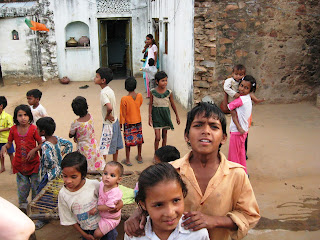 |
| Tribal women in Northern Thailand |
Poverty and excessive wealth, militarism and arms industry, and the unjust distribution of capital, land and resources are issues of power and powerlessness. Without a shift of power through structural change, these problems cannot be solved. The Christian church, along with the rest of society, is inevitably involved in politics which is “the art of living and community”. Servants of Christ must express his Lordship and their political, social and economic commitments and their love for their neighbors by taking part in the political process.
How then can we contribute to change? First, we will pray for peace and justice, as God commands. Secondly, we will seek to educate Christian people in the moral and political issues involved, and so clarify their vision and raise their expectations. Thirdly, we will take action. Some Christians are called to special tasks and governments, economics or development. All Christians must participate in the active struggle to create a just and responsible society. In some situations, obedience to God demands resistance to an un-just established order. Fourthly, we must be ready to suffer.
As followers of Jesus, the suffering servant, we know that sacrifice service always involves suffering. While personal commitment to change our lifestyle without political action to change systems of injustice lacks effectiveness, political action without personal commitment lacks integrity.
(This is part 7 of a series of 10 blog posts. Developing a Simple Life-Style was a conference with 85 evangelical leaders from 27 countries at High Leigh Conference Center, London, England March 17-21, 1980)









